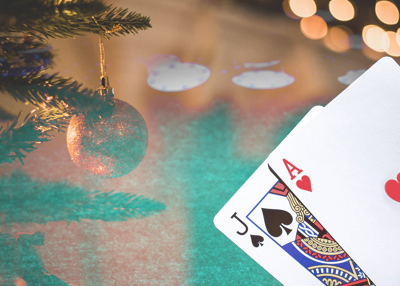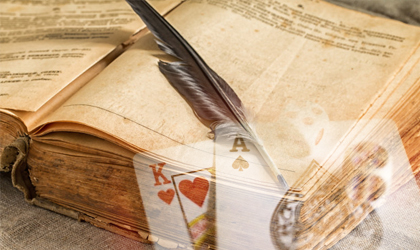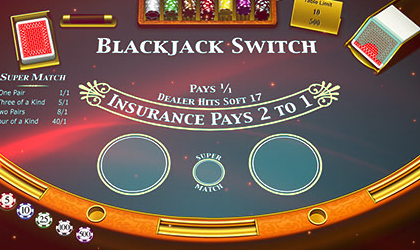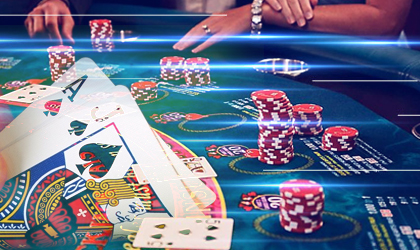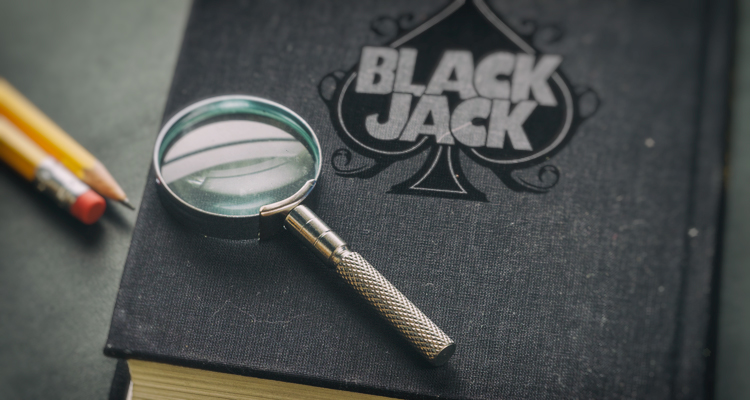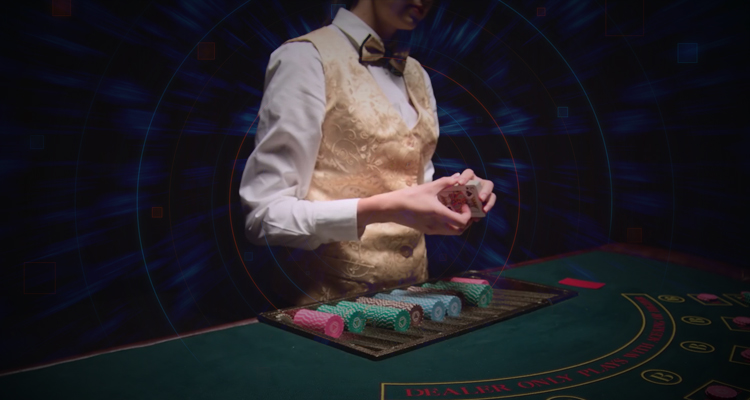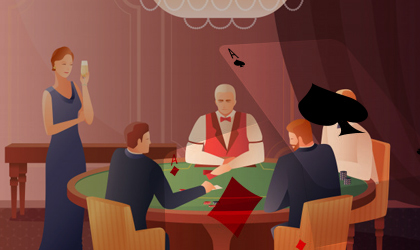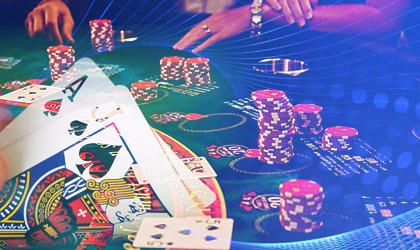Online Blackjack Games
A Guide to Playing Blackjack
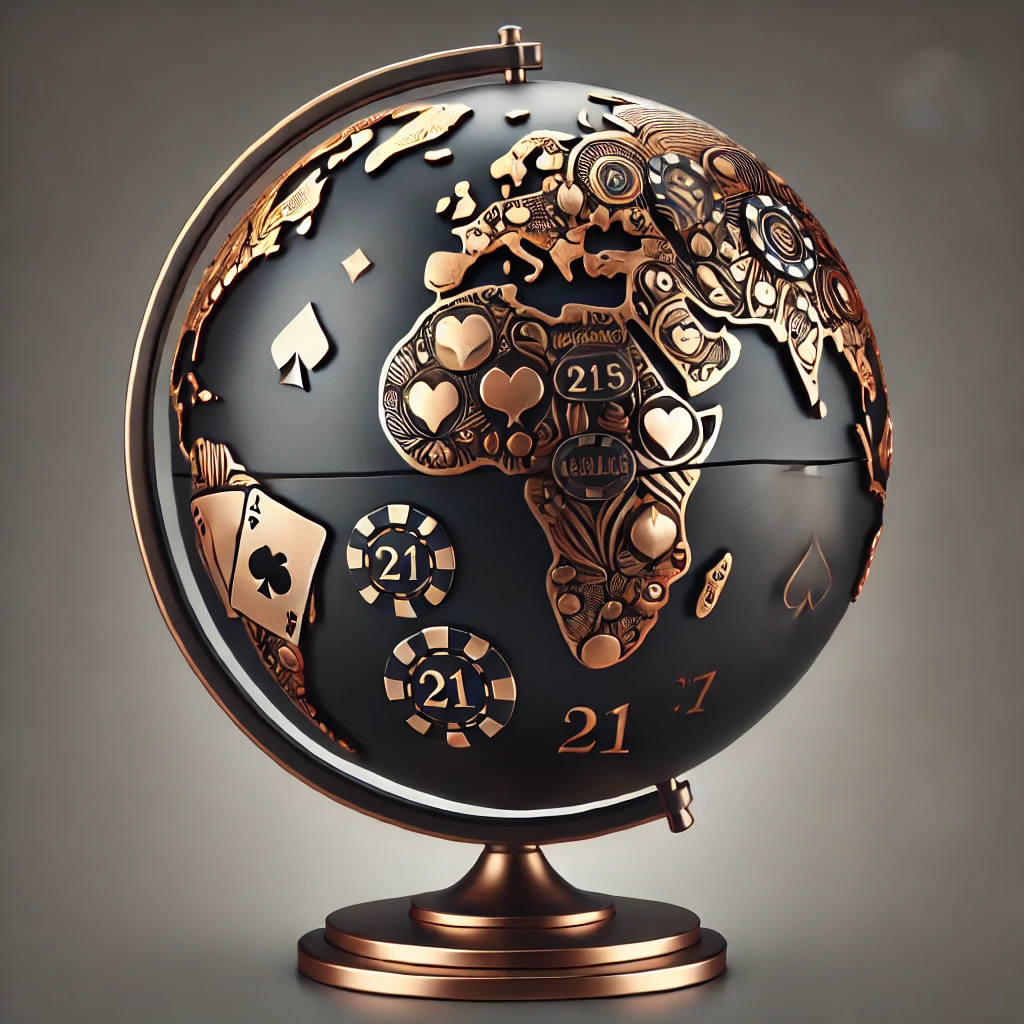
Head to the tables, and more than likely, blackjack will be the most active with elbow to elbow players. One reason for the strong draw among the gambling community is the winning factor. As far as card and table games go, it is one of the more friendly odds for the player. That alone has customers rushing to the nearest table. However, it takes more than luck to get ahead in this game; skill is an equally important component to winning.
Learning the Basics
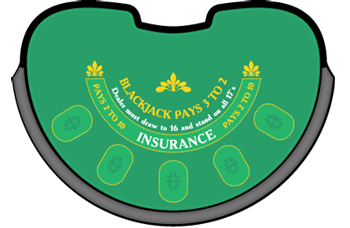 Blackjack or 21 as it is often referred to, is a table game played with cards. Before you begin to play for real money online or at a land based casino, it is advisable to understand the basic premise of the game. The objective is to beat the dealer by getting closest to twenty-one points without going over. Each card has a point value and adding them up to 21, or as close to this value as possible, is the goal.
Blackjack or 21 as it is often referred to, is a table game played with cards. Before you begin to play for real money online or at a land based casino, it is advisable to understand the basic premise of the game. The objective is to beat the dealer by getting closest to twenty-one points without going over. Each card has a point value and adding them up to 21, or as close to this value as possible, is the goal.
Point Values:
- Aces = 1 or 11
- Face Cards (jack, queen and king) = 10 points
- Numbered Cards = face value
There are many variations of blackjack, but to get started we will focus on the basic principles. The dealer begins dealing everyone two cards in two passes, starting with the player to his left, including himself.
After cards are dealt, the player to the immediate left of the dealer will begin. Depending on the value of the cards, players have an option to “hit” or ”stand.” Choosing to hit means the player wants another dealt card. The player may hit until determining the value of their cards is close enough to 21 without a bust, meaning going over twenty-one points. If it is a bust, the dealer automatically wins.
Once the players’ hands are complete, the dealer must take another card if the value of their hand is less than sixteen. If the value of the hand adds up to seventeen or more, they must stand. A perfect blackjack hand is an ace with any ten-point card, 10 through king.
How to Play Aces
The ace is one of the best cards in the deck, giving a player more leverage, while also allowing more risk, due to the two values it holds. Depending on the value of your other cards, you may use an ace as an eleven if it does not put you over twenty-one. For example, suppose an ace and a 5 are showing, you would have what is called or referred to as a “soft sixteen,” meaning you could still hit without the risk of going over twenty-one. If you drew anything larger than 5 for 21, it isn’t a bust because the ace is then counted as 1. That’s the beauty of the ace card!
This is just a general overview of how to play. For more information about the finer details of Blackjack read the informative Blackjack Rules Explained article.
Online Casinos Spices Up BJ with Diversity
There is a multitude of variety for blackjack delivered by a legion of software manufacturers who provide a list of variations. It is one of the perks of playing online that gives the player ample choices. We have thorough reviews giving complete instructions on how to play various forms of blackjack that are broken down by software and a list of online casinos that offer them. Hone your skills before jumping into new cash games territory.
Also, for your convenience and enjoyment, you may discuss or ask questions about Blackjack in casinos or just about the game in general in our Blackjack Forum.
Card Counting
Want to learn how to card count? BlackjackInfo.com is an established resource to learn the ins and outs of beating the game of blackjack including advanced strategy, card counting techniques and more. Founded by former renowned professional Ken Smith, the site has recently expanded its content to cater to those who want to play blackjack online.
Other Useful Blackjack Strategies
With movies such as 21, showing the audience all the great wins they could hit while card counting, it is easy for interested blackjack enthusiasts to forget about other useful moves, systems and strategies. In fact, these players have a range of decisions they could make to optimize their gameplay, depending on the type of blackjack game they are playing at, the cards in their hand, and the dealer. Knowing the rules of the table you are playing at is one key consideration; just take it from there, test different moves under various circumstances until practice makes perfect.
Blackjack Games
Frequently asked questions
I am sure, Bill, that most readers will warm to your point; it has a certain healthy smell of horse sense about it, but not quite enough. Watch closely. With two 8s against a dealer 10 card, the good common sense your momma raised you with tells you that splitting this hand just creates two losers. It probably seems that every time you've split 8s it in the past, sure, you might occasionally get two 10s, but then the damn dealer flips over his card and it's always a 10 card in the hole. But actually, what you're really doing when you split 8s is breaking up a 16, the worst possible hand you can have in blackjack.
Here's the arithmetic, Bill, based on a kazillion computer simulations of 8s against a dealer's10. If you split 8s, you will lose $44 for every $100 wagered. If you were to just hit the hand, you would lose $51 for every $100 bet. You may not necessarily always put extra jingle in your pocket by splitting 8s, but you will lose less money over the long run if you split'em or if you stand.
What, no secret stash, Mary? Anyhow, you still only took one card and that had no effect on the outcome of your hand, nor would it have, had you had cash on hand and doubled down.
But to answer your question, the normal house edge in blackjack using basic strategy, which includes doubling when the opportunity presents itself, is usually 0.4% to 0.6%, depending on the rules. By not doubling down, you increase the house edge by 1.9%, so by not doubling, the overall casino advantage would be 2.3% to 2.5%.
It is a Nevada state law that an electronic game, which uses the representation of cards, must be truly random. Hence, both video poker and video blackjack machines both use random number generators. And although your letter, and presumably you, came from outside the Silver State, almost every gaming jurisdiction in the US more or less goes by Nevada regulations.
Someone once said: "the first rules of holes is when you are in one, stop digging." Rory, You've got one big shovel.
In blackjack or any casino game for that matter, the less you know the more you should deride the analysis of anyone who has the knowledge and takes the trouble to study the subject from a mathematical perspective. Depending on how you play blackjack, you can gain the designation of professional player all the way down to a "sucker on a stool." Using guesswork, your playing style doesn't put you in the professional category; more like a "dupe in action."
Thanks, Al, for the nice compliment. Anyhow, as to your question, yes, if you have the smarts to count down one deck, you can count down two, six or even eight decks. You just happen to be counting longer between shuffles and you can practice online here.
As for counting cards online, smarts won’t matter since most online casinos shuffle-up after every hand.
Yes, because Nevada Revised Statute 176.387 does not allow casinos to use Crazy Glue on casino stools to keep players in bondage until they lose all their winnings.
Seriously, Buddy, free buffets are used by casino management primarily to encourage additional gambling. FREE and FOOD are subtle weapons that give the casinos an added firearm in reclaiming what they believe is still their money. The pit boss is simply treating you to a buffet so you feel obligated to play longer. Long enough so that the buffet will cost you $400.
It is much better to learn to win and walk, not stay and suffer (money loss and abdominal duress).
Smart blackjack players always play in a casino that offers the best playing conditions. Early and late surrender are two such rules that do help the player. Early surrender permits a player to relinquish half of the wager even if the dealer has a blackjack. With late surrender, a player loses the bet if the dealer possesses a blackjack.
Basic strategy for late surrender on a multi-deck game is as follows:
- Surrender hard 16 (but not 8-8) vs. 9, 10, ace.
- Surrender hard 15 vs. 10, although some experts also advise those who are risk-averse to surrender hard 15 vs. ace.
One more thing, don’t think of surrender as giving up half your wager, but as just getting back half your probable loss.
Gambling Wisdom of the Week: “Lady luck rules in the short run.” Ray Franke, Magical Blackjack
What I mean by perfect basic strategy, Dan, is making perfect use of the information available to maximize the expected outcome of the bet. In blackjack, perfect basic strategy is nothing more than how you play each blackjack hand against the dealers "up-card." In Video Poker it’s which discards you choose since eliminating the wrong cards reduces your overall payback.
BlackjackInfo displays 3 strategy cards that put these priceless details at your fingertips.
Superstition, especially when it comes to cutting cards, can sometimes get screwy at a blackjack table. Players who refuse to cut will typically say, "I don't want to be blamed for a bad deck" or "I'm always unlucky", to which I used to respond as a dealer to the hapless player, “What the hell are you doing in a casino if you are always unlucky?”
Those living in the compos mentis world know that the cut really isn’t critical to the flow of the cards, nor does it make any difference who cuts or where.
Of course, Alex, exclusive of the horse sense above, it really depends on where you are playing as to what happens if no one chooses to cut his or her luck. Some casinos just have the dealer insert the cut card at a pre-determined spot in the deck(s), like two-thirds deep, and pitch away. Yet in the three joints where I dealt cards if everyone refused, I personally hoodooed the players by my witching cut and then watched their luck wither away.
You’re not smelling a trap, Mike, but perfume. What is considered cheating, that of trading cards between two hands, is now legal for those who play Blackjack Switch. Players must make two bets of equal size and they are then allowed to switch the second card dealt to each hand. For example, you are dealt a seven and then a six on one hand, and a five followed by a three on the other. Normally this would give you a 13 and an 8. With Blackjack Switch you can now switch the second card dealt, the six with the three, and you now have two great hands to double down with 5+6 (11) and 7+3 (10).
Granted, Mike, a winning player’s blackjack is paid even money, and the dealer is compensated with a push on 22, but, using perfect basic strategy similar to, but -- due to the push on a 22 -- not exactly like conventional blackjack, the house edge is 0.16% with six decks and 0.18% with eight decks.
Gambling Wisdom of the Week: “You can’t gamble by the clock. Time can place a limitation on pleasure.” Nick the Greek Dandalos
Ordinarily, a dealer inserts the cut card anywhere from the halfway point to 75% from the top of the deck(s). Because counters gain their advantage the deeper they can penetrate into the deck(s), casinos will thwart a counter’s profit potential by inserting the cut card closer to the front.
Since counter profits dwindle when the cut card is inserted closer to the front, which by the way is legal, consistent winning for the card counter becomes much more difficult since counters can capitalize on higher plus and minus counts when they were allowed to access the deck deeper.
Casinos everywhere may also legally shuffle the deck(s) before the cut or burn card presents itself. If management suspects a player of card counting, they may “shuffle-up” on him without warning, even after just a few rounds have been dealt on a multi-deck game, or even after the first round on a single deck.
Premature shuffling destroys the advantageous situation counters typically enjoy. The successful card counter avoids the early shuffling countermeasure by camouflaging his play and remaining undetected by pit personnel.
Yes and yes. But for starters, Ray, you are confusing house edge with casino hold.
The "house edge" is a predetermined percentage of each bet that the house takes as payment for letting you sit at their tables. The casino's "hold" is the share of the chips the player bought that are won back by the casino. It’s not all that hard for the casino to turn a house edge of 1% and then, “Presto! begone!” turn it into a 14-plus percent hold.
Casinos, Ray, are not in the gambling business. They are in the math-and-time business. Casino operators know that even considering a halfway decent blackjack player, the longer his keister is in their seats, the higher their hold will climb.
Allow me to clarify. Most blackjack players give up 5% of their wager to the house based on their shoddy play. (The house has a 5% advantage against the “average” blackjack player. Incredibly, less than 1% of all BJ players employ perfect basic strategy.) Consequently, after 20 hands, based on perpetual play, they should mathematically have $95 remaining. But the average player stays stuck to the stool, so with their remaining $95, slowly but surely, they fatten up their losses, giving the house a higher hold than the actual casino edge on the game.
Multiply that, Ray, by 24 hours a day play, grinding away at squatters on hundreds of blackjack tables across Mississippi, and 14.58% doesn’t really seem all that high. The only one gambling here is the blackjack player, not the casino.
The only way you, the gambler, can avoid getting caught in this grind is to shorten your gambling timeline. Casino operators know all too well that such cautious behavior has negative implications on the casino’s hold. They would much prefer to see you crazy glued to a stool and anteing-up casino chips all day long.
Casinos thwart card counters by using different countermeasures. They can use more decks, which decrease the player's advantage, or they can shuffle prematurely. The downside to frequent shuffling against a suspected card-counter is that it takes time, and if the dealer isn’t pitching cards to non-counting players and putting their kiss goodbye chips in the tray, the casino’s losing money.
Casinos can speed up play, and simultaneously curb counters with automatic shuffling machines.
Some shuffling machines shuffle-up one set of cards while another is in play. Others, known as Continuous Shuffle Machines, allow the dealer to simply return used cards to a single shoe, which allows play without any interruption. Because Continuous Shuffle Machines essentially allow minimal deck penetration, the advantage of traditional counting techniques is completely lost.
As for online casinos, the deck is reshuffled at the start of each hand, giving the card counter zip advantage. You will see some online casinos show an animation of the dealer shuffling the cards intermittently to give the illusion that the cards are being shuffled infrequently, but the cards are nonetheless actually shuffled after every round. It’s for show, Jack, not for wrapping you in dough.
Bet Small or Not at All.
Although Rob, as stated, was not counting down the deck, even as a recreational player, if you happen to see a disproportionate number of tens and aces leave the deck, you will want to bet less, especially on a single deck game. Likewise, you will want to increase your wager if lots of small cards are withdrawn, especially fives and sixes.
Now, Rob, as to your hurrah account of locating a tough-to-find single deck game that pays 3 to 2 for a blackjack: Yes, some casinos may still offer "Single Deck" blackjack, however, there may be a fang behind that welcoming grin. Note that blackjacks now predominantly pay "6 to 5." Minus the 6 to 5 rule the house edge is typically 0.05% against a basic strategy player. Add a 6-5 rule on blackjacks and the cost to a smart player is an additional 1.39%, for a total casino advantage of 1.44%. Rob, you’d be much better off on a multiple deck game that pays 3 to 2 for a blackjack than on a single deck game that pays 6 to 5.
Gambling Wisdom of the Week: “Fear can make a sucker do some of the most drastic things you ever imagined... like taking a job.” Minnesota Fats (1966)
You start by asking, Rick, because if you don’t, how in the heck can they, the pit boss, say yes. Second, you will need to be rated. They -- this time “they” is a computer, will assess your rating and eligibility for comps. To get your goodies, you will be expected to bet a decent chunk of change for a calculated stretch of time. Then they, casino management, will base your room, food and beverage goodies on what you are probably going to lose. Huh? On what I “lose”, and not what I show up with, you ask. Yep.
They, the computer again, now considers your average bet, how many hours you were possibly going to play, the speed of the game, and the casino advantage. This, in theory, computes essentially your expected loss to the casino over a specific period of time and suggests to the management how much to give back to you in the form of comps.
Quick example: Suppose Joe Six Pack is betting $20 a hand for three hours, averaging 100 hands per hour, coupled with the usual house advantage of five percent the casino holds over the average blackjack player. The casino’s evil wizard can predict in advance that Joey will lose $300. ($20 X 3 hrs. X 100 hands X .05 = $300).
So what will losing $300 get him? Well, if he were to ask up-front about some freebies, and they rated him, he should get at least a feeding frenzy at their buffet.
Nuts to that you say. “I ain’t gonna lose no 300 buckaroos just for a trip to the chow line.” Well, you could use some comp chicanery by initially betting more when the pit boss starts watching and rating your then-play, and less when he isn’t. What you’re doing would be making the pit boss think you’re a high roller. The computer knows only what is keyed in, and it rations out gratuities accordingly.
Speaking of buffets, how about a Buffet Wisdom of the Week: “If you eat well you can eat more.” Rachael Ray
Throw your chart away, Jon. Blackjack is a horrible game if your foundation for winning is based on how many hands you actually win. Excluding ties, a player loses approximately 53% of all hands. However, the casino, bless their hearts, permits you to double down and split hands after viewing the dealer up card. This allows the player to get more money in the circle when conditions are favorable. In addition, they give you that sweet 3 to 2 payoff for a blackjack.
That is why, Jon, the casino has only a half percent edge over the disciplined basic strategy player.



